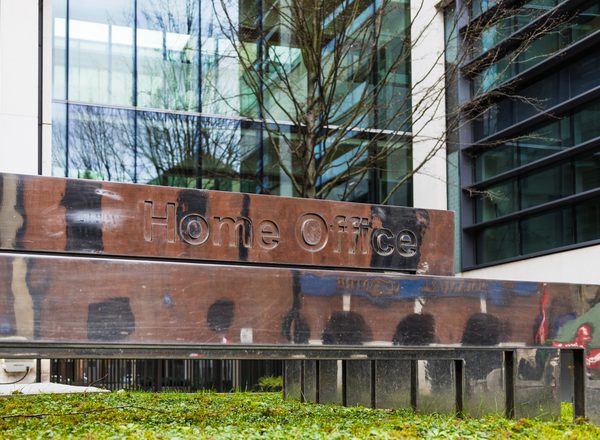
A ‘paradigm shift’ in asylum and immigration policy?
Article
In 2019, a package of asylum reforms known as the ‘paradigm shift’ was passed by a broad party consensus in the Danish parliament.
The reforms – which were the culmination of years of increasingly restrictive policies – were designed to signal Denmark was no longer a welcoming country for refugees. They sought to make refugee status temporary, placing a new focus on ‘repatriation’ instead of a pathway to citizenship.
Last week, the Labour government introduced its own ‘paradigm shift’ in asylum policy, taking inspiration from their social democratic counterparts in Denmark.
The asylum policy statement
On Monday, an array of new policies were announced to the Commons to reform the asylum system. As in Denmark, refugee status will now primarily be temporary: refugees will need to wait 20 years to get indefinite leave to remain (ILR) and settle in the UK. Their status will be reviewed every two and a half years, and will not be renewed if the Home Office considers that they no longer need protection. There will be new restrictions on family reunion and access to public funds. And assets of individuals will be seized to contribute towards the cost of asylum support – though not, ministers were quick to point out, jewellery or items of sentimental value. The aim of the reforms is to deter small boat arrivals from the UK and to instil the values of fairness and contribution into the asylum system.
The ‘earned settlement’ reforms
Similar principles were at work on Thursday, when the home secretary came back to the Commons to announce another major reform package – this time to rules on settlement across different immigration routes. The standard route to settlement will be doubled from five to 10 years, or tripled to 15 for migrant workers sponsored for jobs categorised as below graduate level. This will then be shortened or lengthened depending on someone’s circumstances. A high salary, proficiency in English, a public service job, or a track record of volunteering could see people waiting less for settlement. On the other hand, claiming public funds will extend the wait for ILR for an additional five to 10 years. Overstaying by at least six months could lead to a hefty penalty of up to 20 years on top of the standard wait.
Evaluating the reforms
So, what to make of these sweeping reforms? The home secretary is right to say that the asylum system is in urgent need of repair. Small boat arrivals so far this year are close to 40,000. Asylum appeals at the first-tier tribunal have escalated from around 7,500 in the first quarter of 2023 to over 50,000 in the first quarter 2025. And the cost of the system has spiralled – totalling £4.76 billion in 2024/25, 10 times more than a decade ago – in large part due to the exorbitant cost of hotel accommodation.
Some of the proposals could help to address these issues. The government has proposed a new approach to asylum appeals, led by an independent body of trained adjudicators, which could speed up the current process. Provided the government follows the rule of law, expediting certain appeals is justified given the scale of the current backlog and the need to bring down hotel use. The devil will be in the detail, but appeals reform is long overdue.
The home secretary is right to say that the asylum system is in urgent need of repair
There are also promising proposals to open up new safe routes, including a revamped community sponsorship scheme. The numbers will be in the low hundreds to start with. But crucially the home secretary has acknowledged the argument that safe routes can help ‘change the calculus’ and incentivise people away from dangerous crossings.
There are, however, two crucial tests for the government’s reforms: will they work to reduce small boat crossings, and will they help to support migrant integration? On both tests, the new proposals face serious problems.
Will the reforms tackle small boat crossings?
First, many of the proposed measures are unlikely to deter people from coming to claim asylum in the UK, either by small boat or by other means. In Denmark, the model for the UK’s new policy on temporary status, this approach has been a clear failure: of around 30,000 Syrians in Denmark, only a few hundred have had their protection status revoked, and no-one has been forcibly returned.
In fact, there is remarkably little evidence that policies relating to access to welfare support or permanent residence have any impact on asylum seeker choices. And while there is some evidence that liberal family reunion rules can make a difference, the UK has broadly been in line with much of the rest of Europe in this area (and in some respects, such as for unaccompanied children, has been a lot tougher).
Perhaps most strikingly, the UK has now passed successive legislation signalling a tougher approach to asylum and irregular migration, from the Immigration Act 2014 to the Nationality and Borders Act 2022. Just earlier this year, people arriving in the UK irregularly were barred from ever getting UK citizenship. Yet the boats keep coming. It therefore seems implausible that these new measures will make a meaningful difference.
Will the reforms support or undermine integration?
More crucially still, the government’s shift towards much longer waiting periods for settlement could have major implications for integration. The new temporary status risks placing refugees in an extended limbo, preventing them from fully integrating into communities.
The government may argue that its measures are designed to encourage integration by, for instance, creating shorter pathways to settlement for refugees who work or study in the UK.
The government’s shift towards much longer waiting periods for settlement could have major implications for integration
But an intention to help integration is no guarantee of success. A study into rules tightening access to settlement in Denmark (prior to the ‘paradigm shift’) found that these policies, which were intended to support labour market outcomes, in fact led to lower employment levels. This, the authors argued, was down to the rules being overly stringent: people who were already struggling with integration before the reforms became discouraged because they thought it would be too difficult to meet the new requirements.
The wider ‘earned settlement’ reforms face similar dynamics. In many cases, a contribution-based model of settlement – which rewards earnings, language skills, public service, and community volunteering – could have real benefits. But for a smaller number of more vulnerable groups, the policy will push them onto a lengthy path to settlement – completely out of line with most of our counterparts – creating a near-perpetual state of insecurity.
Take, for instance, the cohort of migrant workers who came to the UK post-pandemic to fill shortages in the social care sector. Many faced exploitation when they arrived or found that the work they were promised never materialised. This has led to a large pool of ‘displaced’ migrant workers whose original employer sponsor licences have been revoked. Many may become overstayers. On the face of it, this could mean that these workers need to wait up to 35 years to settle in the UK.
What impacts could this have? We already have insights from previous research on the existing 10-year route to settlement, which is for certain people granted leave based on their right to family or private life. Our study explored the experiences of more than 300 migrants who were on (or who had previously been on) the 10-year route. Over half of respondents said they struggle to meet the costs of utilities and food. Significant shares also said the 10-year route made it harder to find work, created a feeling of insecurity about living in the UK, and harmed their children’s future prospects. This is not a picture conducive to long-term integration.
Language matters too. At Labour conference, the prime minister spoke convincingly about unifying the country in the wake of a summer of tension and division. In the run-up, he warned that revoking people’s permanent residence en masse could ‘tear this country apart’. But now the language has shifted: ministers describe illegal migration itself as ‘tearing our country apart’. If the government wants to take on the notion that the UK is too diverse and divided – as the prime minister said in his conference speech – then the most powerful case will be a consistent and staunch defence of the country as a unified, tolerant community.
There is a genuine pathway to a better-managed immigration and asylum system underpinned by fairness and contribution
Where next?
The broad principles of the home secretary’s plan are right: the asylum system does need to be fixed and should be underpinned by the principles of fairness and contribution. But the risk is that this agenda does not deliver on its promise to tackle small boat crossings, while undermining the very integration outcomes it seeks to promote. Far from a paradigm shift, this would be more of the same.
There is a genuine pathway to a better-managed immigration and asylum system underpinned by fairness and contribution. It would involve scaling up the UK-France asylum deal, speeding up decision-making and appeals to close down asylum hotels, and encouraging and promoting integration into communities. This would be the true paradigm shift we need to fix our broken system.
Related items

Far from settled: The government’s ‘earned settlement’ consultation
How long should people have to wait until they can permanently settle in the UK? This is the core question underpinning the Home Office’s ‘earned settlement’ policy, currently out for consultation.
Making the Child Poverty Strategy work for migrant families
If we are serious about tackling child poverty, we cannot ignore the children of migrant families.
Marley Morris on ITV Tonight discussing asylum seekers